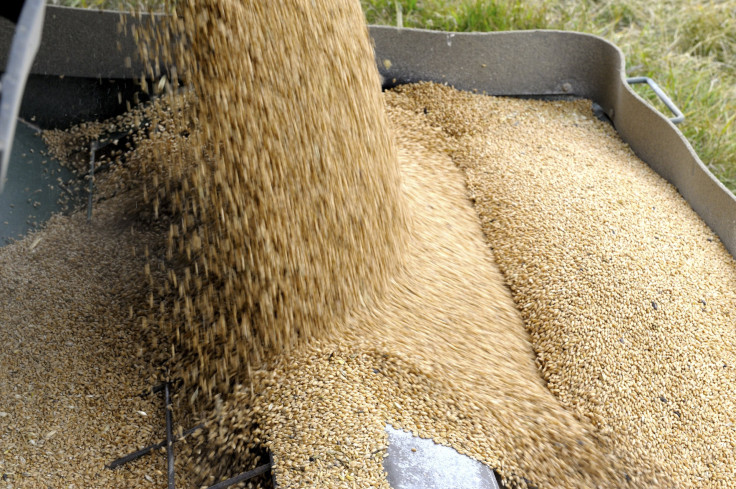Canadian Grain 'Crisis' Affects More Than Just Your Morning Bowl Of Cheerios

In a speech at a conference on Friday, Saskatchewan Premier Brad Wall said weather, railway issues and a record crop have led to a grain crisis that will impact food markets around the world.
While grain-shipping issues may not generate excitement among the general public, the situation in Canada hit closer to home than you think. Wall said General Mills runs the risk of running out of oats to produce their much-loved Cheerios cereal by mid- to late March.
Wall criticized the federal government and Canada’s two national railways – Canadian National (CN) and Canadian Pacific (CP) - for causing a grain back-up that has left billions of dollars in grain undelivered across Canada.
Rail is the main method of grain transportation in Canada. CN and CP transport the grain to ports where it’s loaded onto ships that take it across the world.
CN and CP also ship oil across Canada, and its oil shipments are leaving few trains left for the massive amount of grain that needs to be transported. The two rail lines also cite weather and the need to use shorter trains in winter as a reason for their inability to get grain to ports.
That leaves international buyers without their grain, so naturally they’re turning to other providers. Earlier in February, Japan announced it would be buying grain from the U.S. after Canadian grain was late two months in a row. The Japanese had a ship waiting in Vancouver for three weeks before it went to Seattle for its grain.
Wall said the delays are hurting Canada’s international reputation. “What’s at stake is the brand for our country in terms of reliability,” said Wall to a crowd of fellow conservatives in Ottawa.
“The Great Grain Crisis of 2013-14,” as iPolitics calls it, won’t just affect your morning bowl of cereal either. Wall says there’s another way to get grain (and oil) moving across Canada, none other than the Keystone XL oil pipeline that everyone is talking about.
With oil moving via the Keystone XL, the railways will be free to move more grain. Wall is intent on doing what he can to make the Keystone XL look as good as possible for legislators from the U.S. and Canada, but the Keystone isn’t a viable short-term solution. For that, officials are looking to change regulations to get more grain moving.
CN and CP officials told government representatives they’re ready to deploy thousands of more grain cars per week, but Canadian Agriculture Minister Gerry Ritz is skeptical of the claim. For now it looks like the only way to get grain moving, farmers paid, and Cheerios to consumers is to enact emergency legislation to ease revenue caps and get the railways to provide adequate service to grain producers.
© Copyright IBTimes 2024. All rights reserved.






















